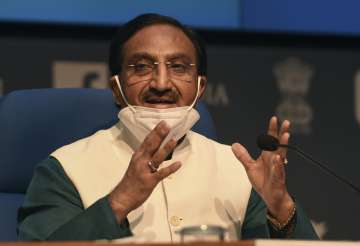Education Minister Ramesh Pokhriyal Nishank has sought the suggestions of school principals and teachers on the implementation of the new National Education Policy (NEP) on Sunday. Apart from that, Nishank said that on September 1 he will answer all the students regarding NEP 2020 via his Twitter page.
The education minister took to his Twitter handle and wrote, "We believe that the teachers are the key to the implementation of NEP2020, and hence we have decided to call for suggestions from all school teachers and Principals from across the country on how to take the implementation process of National Education Policy forward."
"Teachers and Principals can visit -- innovateindia.mygov.in/nep2020, register their details, and browse the chapter wise questions. They can share suggestions on as many areas as they deem fit," he tweets further.
In another tweet, he wrote, "Students, you heard it right! On 1st September, I will be answering ALL your queries related to #NEP2020 via my Twitter page. So, what are you waiting for? Ask right away using #NEPTransformingIndia!"
Brought by Modi-government last month, NEP 2020 replaces the 34-year-old National Policy on Education framed in 1986 and is aimed at paving the way for transformational reforms in school and higher education systems to make India a global knowledge superpower.
The policy suggests major reforms like teaching up to Class 5 in mother tongue or regional language, lowering the stakes of board exams, a single regulator for higher education institutions, except for law and medical colleges, and common entrance tests for universities.
Replacing the 10+2 structure of school curricula with a 5+3+3+4 curricular structure corresponding to age groups 3-8, 8-11, 11-14 and 14-18 years respectively, scrapping M. Phil programmes and implementing common norms for private and public higher education institutions are among other salient features of the new policy.
Latest Education News
